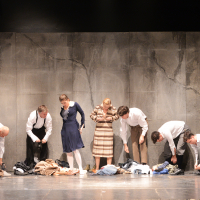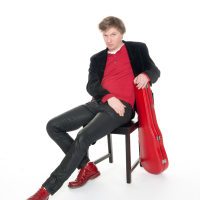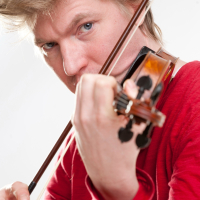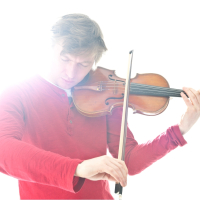Program
Back to archived list
FÉLIX LAJKÓ concert
Narodno pozorište Subotica - scena Jadran-
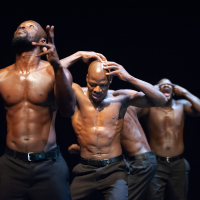 more details
more detailsOMMA
Pozorište 'Kosztolányi Dezső' -
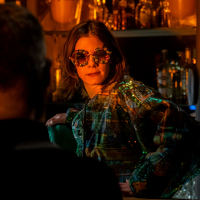 more details
more detailsMovement
Pozorište 'Kosztolányi Dezső' -
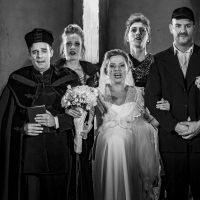 more details
more detailsPeasant opera / Pintér – Darvas
Narodno pozorište Subotica - scena Jadran -
more details
The use of man / Based on Aleksandar Tišma’s novel
Pozorište 'Kosztolányi Dezső' -
 more details
more detailsThe night writer / Jan Fabre
Pozorište 'Kosztolányi Dezső'
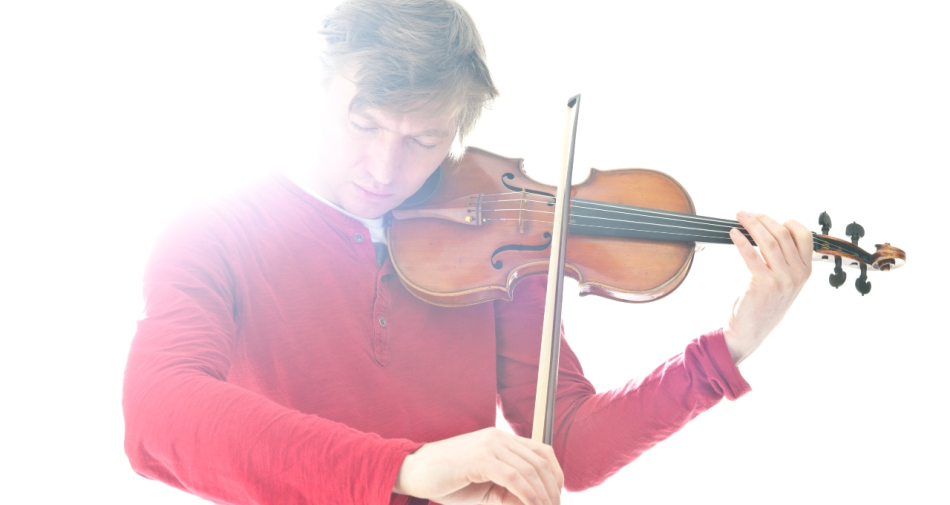
Félix Lajkó was born in Bačka Topola (Hungarian: Topolya, Serbian Cyrillic: Бачка Топола), a town in the multi-ethnic and multi-cultural Voivodina region of present-day Serbia on 17 December 1974 (the same day Beethoven was born a little more than two hundred years before). Despite loving music dearly, no member of his ethnic Hungarian family had chosen music as a profession before. Having started out with playing the zither, Lajkó quit the musical high school of Subotica at sophomore grade to go to Budapest with a borrowed violin and become a member of the Dresch Quartet. He has been commuting between Budapest, Hungary and Subotica, Serbia ever since, representing and culturally connecting Hungary and his native Voivodina region.
Félix Lajkó has always been one of those musicians who affects the soul with special sensitivity, the kind who uses his instruments as an intermediary between himself and the world. No matter what he tries his hand at or who joins him on the stage, the end result is always a mixture of instinctive and viscerally soulful music fed by a crystal-clear source of unknown profundity. His musical world establishes an independent genre that he combines, with unique sensitivity and feeling, with practically any musical ensemble of similar exigency. Félix Lajkó has been giving his highest profile concerts at Müpa, Palace of Arts of Budapest for years.
“My music is essentially based on the sensitivity and variability of my instrument. I do not play any so-called new-style music; I just have my way in improvising and composing. I do not differentiate between musical styles and trends; I play folk, classical, rock, blues, jazz, and improvised tunes alike. At the moment I would describe my music as sentimental metal.”
Lajkó has played together with a large number of well-known bands and musicians. He has had several concerts with the romanian starviolinist Alexander Balanescu, the internationally known VOLOSI from Poland, His violin music captivated musically sensitive audiences in Tokyo, Amsterdam, Berlin, Bratislava, Prague, Budapest, Brașov, Belgrade, Sarajevo, Ljubljana, Frankfurt, Lyon, Bordeaux, Venice, Verona, Edinburgh, London, Tallinn, Munich, Vienna, and New York.
Often referred to as the Devil’s Violinis or a child prodigy, once he is on stage with an instrument – be it the violin or the zither – Lajkó is capable of doing anything, of guarding his audience to a world that opens up only to those born with a special talent. Félix Lajkó handles music rather impulsively. There is no need to define the style or genre of his music, since it is exactly about the opposite: transgressing styles, accepting the inexplicable.
„There are beautiful moments of tranquillity and lyricism... It is super exciting, and I had a sense of the awe audiences might have felt seeing Paganini in the 19th century. Yes-it was that exciting." Simon Broughton about Félix and Volosi, Songlines Magazin 2017
Photos: Róbert Bácsi
